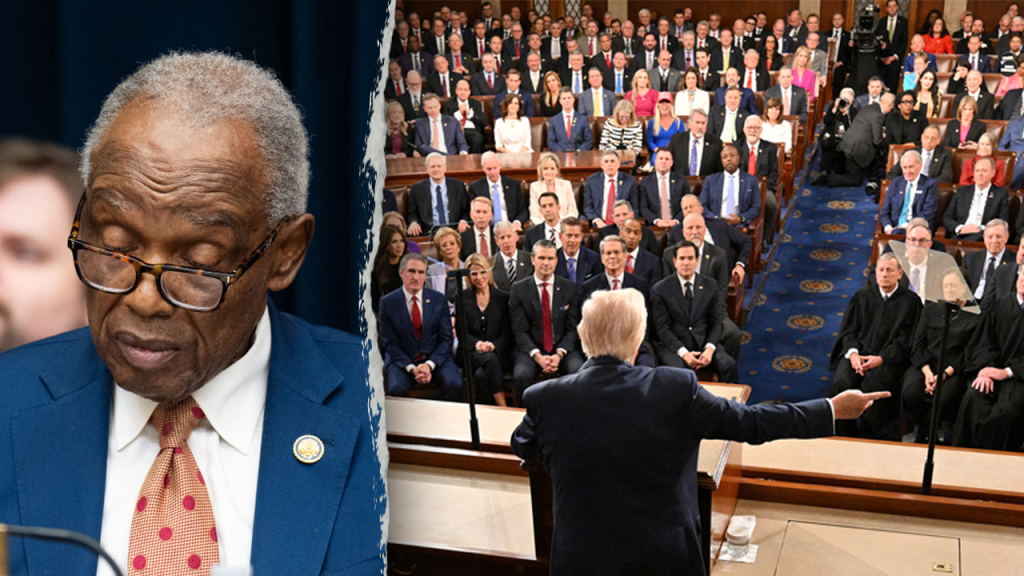In a notable turn of events, 79-year-old Rep. David Scott is facing a primary challenge from former Gwinnett County Board of Education member Everton Blair, who criticized the congressman during a recent town hall meeting. Blair’s campaign highlights concerns regarding ageism in Congress, sparking debates about the appropriateness of long-standing incumbents. The primary challenge appears to reflect broader sentiments within the Democratic Party, seeking a change towards younger leadership in the face of growing political tensions.
| Article Subheadings |
|---|
| 1) Background of the Challenge |
| 2) The Town Hall Exchange |
| 3) Age-Related Concerns in Politics |
| 4) Insights from the Candidates |
| 5) Implications for Future Elections |
Background of the Challenge
The recent decision by Everton Blair to run against Rep. David Scott, a twelve-term incumbent from Georgia’s 13th District, is rooted in a desire for change within Congress. Blair, significantly younger at nearly 50 years less than Scott, aims to challenge what he perceives to be a stagnant political environment in Washington. His motivation stems not only from personal beliefs about representation but also from the urgency felt by many Democrats following the deaths of two party members, which underscored the precarious nature of political stability. Blair’s call for proactive leadership is part of a broader trend where voters express dissatisfaction with established representatives who appear disconnected from contemporary issues.
The Town Hall Exchange
During a town hall forum in January, the interaction between Blair and Scott became heated when Blair sought more clarity on legislative strategies regarding federal funding. The exchange reportedly took a confrontational turn, as Scott defended his actions and expressed frustration publicly. Blair’s discomfort with Scott’s demeanor, particularly the congressman’s dismissive attitude, intensified his resolve to challenge the incumbent. This critical incident marked the catalyst for Blair’s formal entry into the race, driven by a determination to fight for a representation that resonates more with the current electorate.
Age-Related Concerns in Politics
Discussions surrounding the age of political leaders have gained traction, especially within the Democratic Party, where concerns about seniority and relevance are echoed. Many constituents, including Blair, emphasize a need for fresh perspectives and representation that reflects the demographic diversity of America. The phenomenon, increasingly referred to as the “Biden effect,” suggests a potential shift in political dynamics as younger candidates emerge and seek to unseat older lawmakers. Voters express the belief that Congress should be composed of individuals who are not only capable but also in tune with pressing contemporary concerns.
Insights from the Candidates
As both candidates prepare for the upcoming primary, their messages are distinctly tailored to engage the electorate effectively. Blair’s campaign emphasizes his commitment to addressing the real-world issues facing working families, advocating for policies that prioritize social justice, economic equality, and accessible healthcare. In contrast, Scott maintains a narrative focused on his extensive experience and established connections within Congress. He claims that his ability to navigate complex political landscapes has been invaluable in securing resources for his constituents. This divergence in approach showcases the broader ideological and generational divide within the party.
Implications for Future Elections
The implications of Blair’s challenge to Scott extend beyond their individual clash; they signal a potential shift in electoral patterns among Democratic primaries. As younger candidates gain momentum and showcase grassroots support, established politicians might find themselves reassessing their platforms and engagement strategies. The outcome of this primary could influence future candidacies and highlight the importance of adaptability in a rapidly evolving political landscape. The increasing visibility of challengers like Blair may reshape expectations for future elections, encouraging a more diverse array of candidates to enter the political fray.
| No. | Key Points |
|---|---|
| 1 | Everton Blair challenges longtime incumbent Rep. David Scott. |
| 2 | Tensions escalated during a town hall meeting. |
| 3 | The challenge reflects concerns regarding ageism in Congress. |
| 4 | Blair emphasizes the need for a new generation of leaders. |
| 5 | The primary may impact future electoral dynamics and candidate diversity. |
Summary
The evolving dynamics surrounding Rep. David Scott and challenger Everton Blair encapsulate significant sentiments within the Democratic Party regarding age, representation, and political relevancy. As Blair steps forward, leveraging public dissatisfaction alongside a desire for change, this primary challenge may serve as a bellwether for broader shifts in electoral strategy and candidate demographics within the Party. The discussions arising from this contest are likely to influence not just the immediate race but also future political landscapes.
Frequently Asked Questions
Question: Who is Everton Blair?
Everton Blair is a former member of the Gwinnett County Board of Education in Georgia who is challenging Rep. David Scott in the upcoming primary election.
Question: What prompted Blair to run against Scott?
Blair decided to run after a contentious exchange during a town hall meeting, expressing concerns about the need for younger representation in Congress.
Question: What are the key issues in this primary race?
Key issues include the age of political leaders, the relevance of experience versus new perspectives, and the importance of addressing legislative strategies that resonate with today’s electorate.


